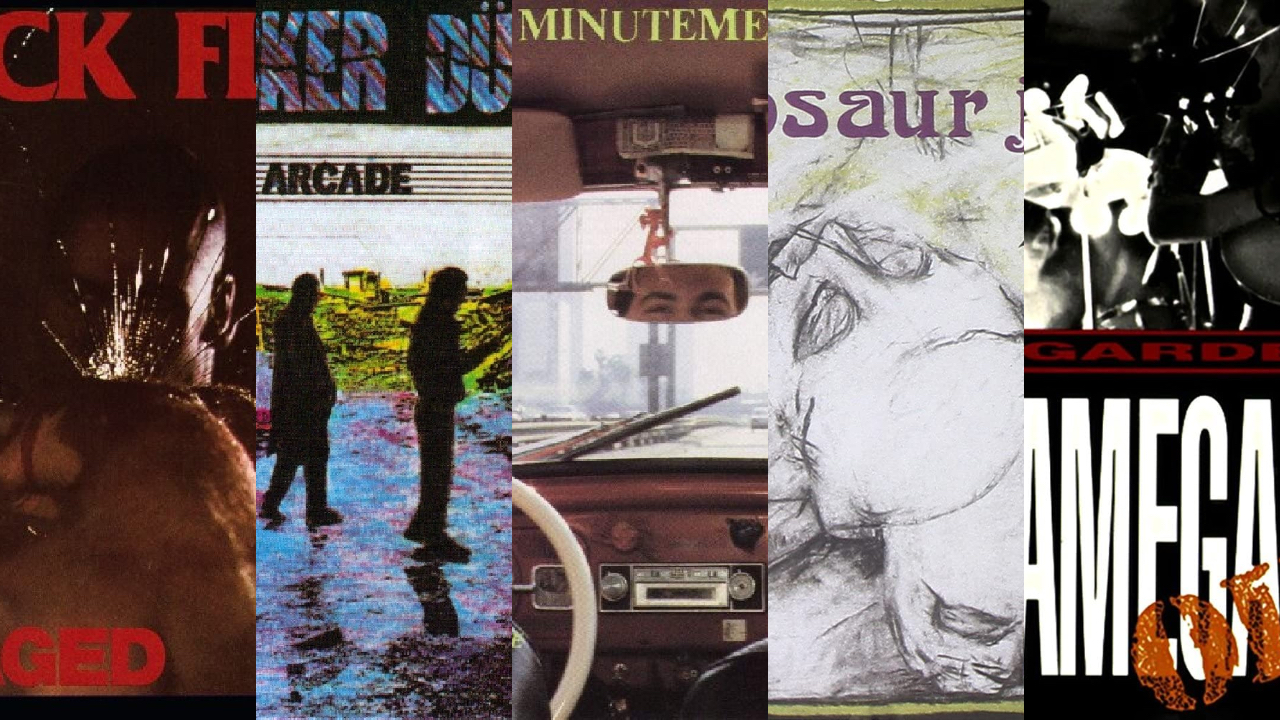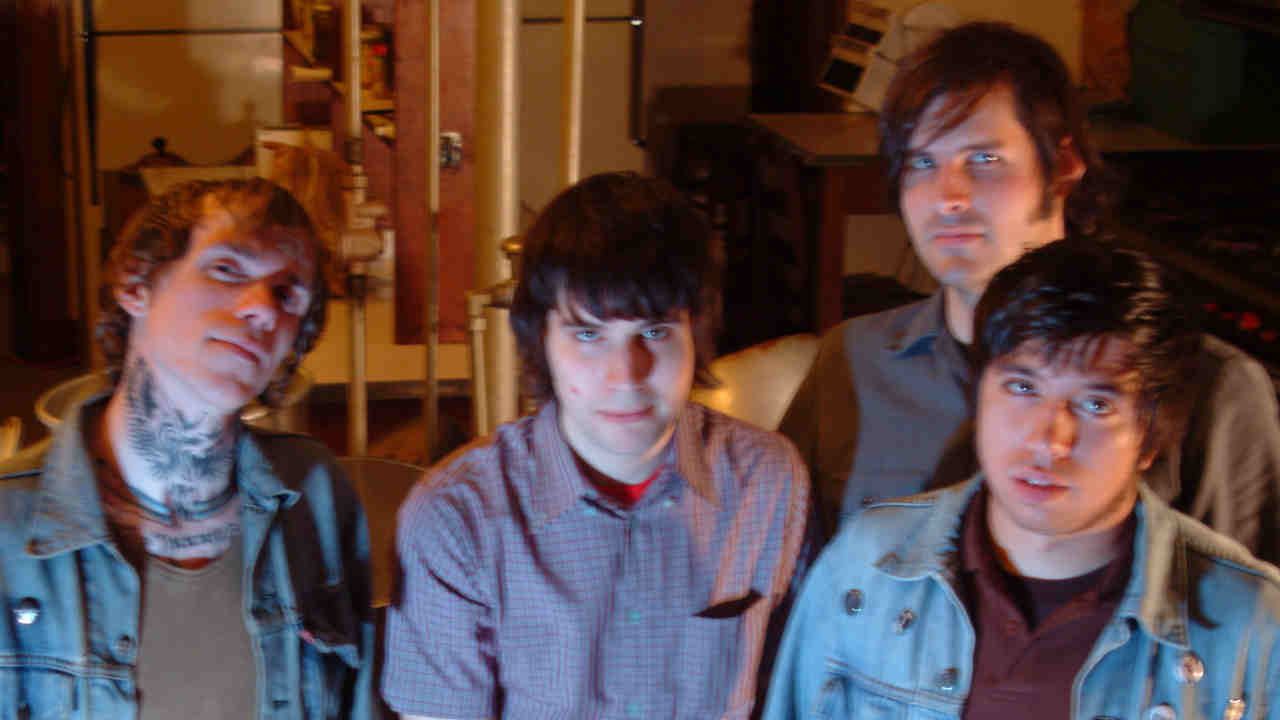A beginner's guide to SST Records in five essential albums
SST became America's definitive underground rock label: here's the story of how it happened, via five essential records, from Black Flag to Soundgarden

The story of alternative music could not be told without a sizeable chapter dedicated to SST Records. For a time in the early 1980s on the US West Coast, the independent record label was the go-to source for the latest in emerging punk rock and hardcore talent. SST bands rewrote the rules, contributing to a series of seminal album releases throughout the decade.
Started in 1966 as a mail order radio surplus side-hustle (Solid State Tuners), Greg Ginn eventually struck upon the idea of using the name to distribute music by his band Panic, such was the lack of interest from established labels. That band soon became Black Flag and their Nervous Breakdown EP in 1978 would go down as the first entry into the SST catalogue. Classics by Minutemen, Hüsker Dü, Sonic Youth, Dinosaur Jr, and Bad Brains followed, helping to establish a new DIY underground network that spread nationwide, and influencing the likes of Dischord, Sub Pop and more in the process.
It wasn’t always happy families and plain sailing, of course. The label experienced its fair share of roster rancour, financial difficulties, and legal wranglings: read Corporate Rock Sucks: The Rise and Fall of SST Records for the full gory story. And a latter-day diversification into jazz territory and a gradual slowdown in operations would see it overtaken by other, similarly minded labels in the ‘90s. But the impact of that golden era reverberates still. Here are five essential releases from it, that exemplify what made SST such a game-changing force.

Black Flag - Damaged (1981)
You can trust Louder
As inextricably linked as SST is to the alternative music landscape, Black Flag are essentially the label’s house band, and their debut album captured lightning in a bottle.
This first full-length showed that hardcore wasn’t all about breakneck speed and feral fury, although there is plenty of that on offer. Damaged is proof that it could also be a conduit for personal catharsis and artistic expression. That expression is about as subtle as the symbolism of new singer Henry Rollins’ bloodied fist against the shattered mirror on the album artwork. As uncompromising too.
Utilizing a full-throttle attack with bookending moments of desperation and menace, Damaged has lost none of its power since, despite the time passed and generations of Xeroxed wannabes that have come in its wake.
Hüsker Dü - Zen Arcade (1984)
An intense, nihilistic, and mind-bending punk rock opera following the travails of a young man who flees a troubled home life to experience the world and all its highs, lows, heartaches and wonders. Hardcore had come a long way in the space of a few short years. But this wasn’t the norm. Instead, Hüsker Dü rejected its increasingly stale formula and on the 70-plus minute magnum opus of Zen Arcade, created their own blueprint.
The melodic jangle of acoustic guitar on Never Talking To You Again would have been considered selling out in 1984. The quarter hour free-jazz wig-out of Reoccurring Dreams dismissed as prog. Not one but two piano ballads? Sacrilege. As the label’s first non-West Coast signing, Minneapolis trio Hüsker Dü helped to spread SST’s reach and remit. Nobody expected them to all but invent alternative rock in the process. Not least SST, who pressed up a mere 5,000 copies of the record upon release, a quantity then unheard of for the label.
Minutemen - Double Nickels On The Dime (1984)
There was something in the water in 1984. Not to be outdone by their pals Hüsker Dü, San Pedro’s Minutemen served up a 45-song, 74-minute epic of their own. Similarly, Double Nickels On The Dime refuses to be pinned down. At least not for long. Spiritually, D. Boon, Mike Watt and George Hurley were punk rock through and through, but they offer greater versatility, stylistically shifting from jazz, folk, blues, and out-there oddities that leave a mark in blistering fashion. They even throw in a Van Halen cover (alongside a Steely Dan and CCR track), although their take on Ain’t Talkin’ ‘Bout Love does the job in a vacuum-packed 38 seconds.
Corona, used as the theme song to MTV’s pranks and hijinks hit Jackass, is probably their best known, but it’s hardly typical. History Lesson – Part II pleads for acceptance from the hardcore community over a gentle melody, for instance. Elsewhere, there’s humour and weirdness by the bucketload.
In totality, Double Nickels… is an exercise in punk rock as a weapon of freedom. It sounds nothing like the scene it sprung from. It transcended its time and place, becoming a landmark release that helped liberate punk rock from the shackles of its own dogma.
Dinosaur Jr - You’re Living All Over Me (1987)
If Hüsker Dü created a new template for alternative rock on Zen Arcade, then You’re Living All Over Me took it, twisted it, and bent it into all kinds of wonderfully warped contortions. Dinosaur Jr’s famous squall is at its unashamedly scuzzy best here, capturing the dysfunctional slacker trio in their prime, creating a sound so aped in the alt.rock boom of the mid ‘90s that it became cliché. But the Massachusetts trio did it first, rocking out on lean, melodic, muscular songs forever threatened by the chaos and noise erupting around them.
Tarpit almost buckles under the weight of that delicate balance by the time it concludes. Sludgefeast sounds reassuringly how a song called Sludgefeast should. Lose lets the trio’s hardcore roots in Deep Wound run riot, whereas original closer Poledo forecasts the softer side of indie-rock by at least a decade (a pretty faithful albeit noisy rendition of The Cure’s Just Like Heaven got tacked onto later reissues).
SST and Dinosaur Jr’s relationship soured over time (and money issues) but You’re Living All Over Me is a document of when they weren’t just on top of the world, they were changing it.
Soundgarden - Ultramega OK (1988)
Long before grunge became a bloated behemoth those drawn into its orbit cringed at, there was simply, the ‘Seattle sound’. Soundgarden may not have been the first out of the traps, but few bands negotiated the psychedelia-meets-punk, slowed down and remoulded into metal shapes as expertly as they did.
Arriving on Halloween in 1988, debut full-length Ultramega OK heralded the arrival of something special, albeit through a muddy gauze, but the greatness that was to come was evident. The pulsing riff that propels Flower would become their stock in trade. Beyond The Wheel brings an irresistible doomy sludge showcasing Cornell’s unimpeachable wail in already pristine condition. There’s even a surprising dose of humour in the scene satirizing interludes 665, 667, and the nod to John Lennon and Yoko Ono on One Minute Of Silence.
The band were famously irked by SST insisting on Drew Canulette as producer, reissuing a fresh Jack Endino mix in 2017. But even though it’s far from Soundgarden or the label’s best, it’s a belter by anyone’s standards and a snapshot of the ticking timebomb that was alternative music, pre-Nirvana.
The latest news, features and interviews direct to your inbox, from the global home of alternative music.
Formerly the Senior Editor of Rock Sound magazine and Senior Associate Editor at Kerrang!, Northern Ireland-born David McLaughlin is an award-winning writer and journalist with almost two decades of print and digital experience across regional and national media.
